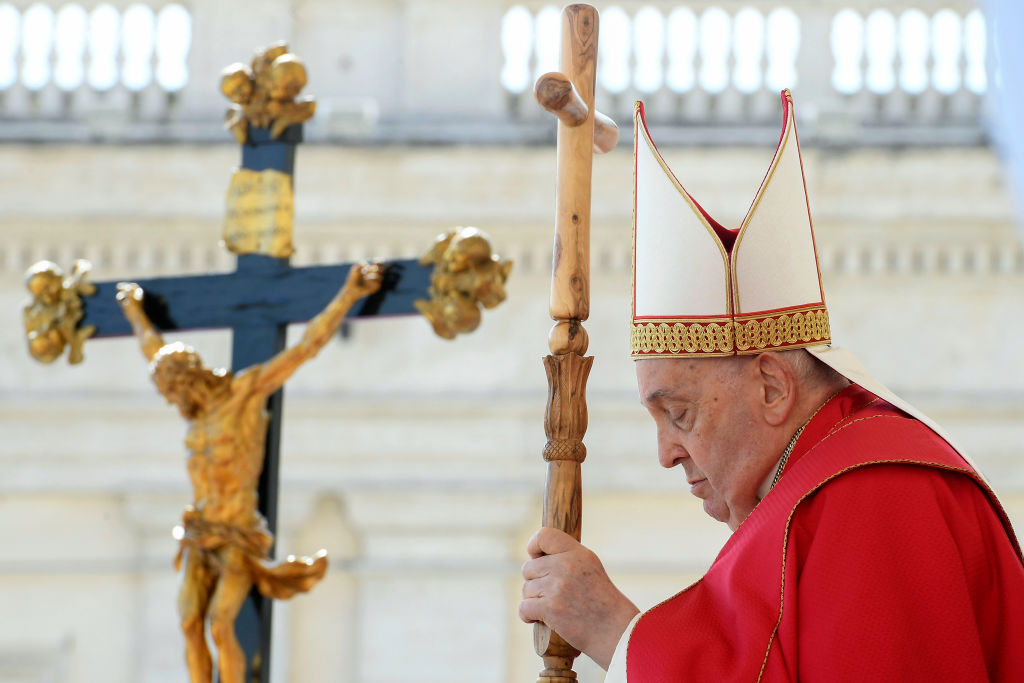In A Secular Age, Charles Taylor observed that post-Christian society has not created a void of faith but instead a “spiritual supernova”, a nebulous plurality of belief systems from which individuals are free to choose. Without organised religion, ideas of transcendence simply mutate into other forms, be it New Age spirituality, WitchTok, paranormal experiences or UFOs. As their popularity surges, it would seem we have moved beyond rationalism and towards a greater receptivity to the supernatural — a receptivity, perhaps, to “re-enchantment”.
Some will welcome any resurgence of the sacred. But is all re-enchantment good? In traditional religious societies, it was believed that not all spiritual experiences were legitimate — in fact, some were thought to be deceptive or even demonic. The problem with a postmodern “supernova”, at least from a theological perspective, is that there are no longer any criteria upon which to judge an otherworldly encounter. With the decline of traditional religion has come the decline of clear distinctions between true and false enchantment.
It is against this backdrop of spiritual confusion that Pope Francis yesterday published a series of guidelines for “the discernment of alleged supernatural phenomena”. The Vatican document is based on a previous statement given by Pope Paul VI in 1978, but has been updated for 2024 in response to a rise in alleged “apparitions, visions and messages attributed to supernatural sources”. It would seem, then, that crises of authenticity are as much of a concern within the Church as outside of it.
One of the reasons for this, the Pope suggests, is technology. “With the advent of modern means of communication”, he says, “these phenomena can attract the attention of many believers or cause confusion among them.” The result is an increased danger of believers “being misled by an event that is attributed to a divine initiative but is merely the product of someone’s imagination, desire for novelty, tendency to fabricate falsehoods (mythomania), or inclination toward lying”.
He urges that priests ought to apply caution towards claims of mystical experiences where there are “manifest errors”; doctrinal contradictions caused by the adding of “purely human elements”; a “sectarian spirit”; motivations of “profit, power, fame, social recognition, or other personal interest closely linked to the event”; immoral actions accompanying them; or “psychological alterations or psychopathic tendencies in the person”. Also under consideration are “any psychosis, collective hysteria, and other elements traceable to a pathological context”.
The statement is, in effect, the Pope’s attempt to reassert religious boundaries between authentic and inauthentic supernatural encounters — between, in a sense, true and false enchantment. The need to distinguish between the two goes back to the time of Christ himself, as the Bible abounds with references to false prophets and spiritual forces which must be carefully discerned. Such “discernment of spirits” took on an even greater significance with the rise of mediaeval mysticism, with clerical suspicion especially towards female visionaries increasing in the 15th century.
These fears did not recede with the Reformation. One only has to think of Edmund Spenser’s 16th-century Protestant poem The Faerie Queene — whose protagonist is constantly battling against the false enchantments of witches disguised as beautiful women — to see how deeply a vigilance towards the supernatural has been ingrained within the Western imagination.
The same is true of Eastern Orthodoxy, which has its own specific term for spiritual deception: “prelest”. According to the Orthodox theologian Seraphim Rose, such illusions are rife in a modern world which presents us with an ambiguous plurality of belief systems, the true character of which can be difficult to discern. In fact, he explicitly cited alternative spiritualities and the UFO craze as means through which prelest permeates contemporary society. For Rose, the “spiritual supernova” is worse than materialism because it is suffused with such false enchantments.
Especially in a technological age of simulacra and illusion, the lines of legitimate spiritual experience have become harder to draw than ever. The Pope’s statement can perhaps be read as a response to this strange new world — one in which the modern subject is left adrift in the supernova, lacking the means to navigate its many beguiling forces.










Join the discussion
Join like minded readers that support our journalism by becoming a paid subscriber
To join the discussion in the comments, become a paid subscriber.
Join like minded readers that support our journalism, read unlimited articles and enjoy other subscriber-only benefits.
Subscribe